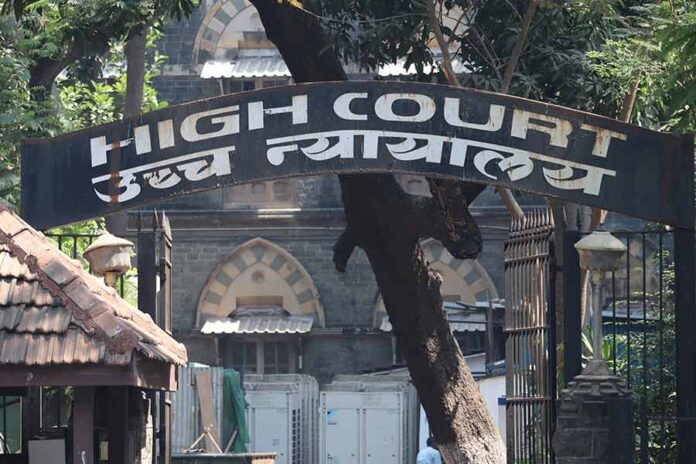A dispute over car parks has led to a high court ruling that any documents added to civil proceedings must meet a twin test of fairness under amendments to the Code of Civil Procedure.
The Bombay High Court’s decision lays down a principle that, in commercial suits, when a plaintiff intends to place documents on record through an amendment, it must be tested under both order VI rule 17 and order XI of the code:
- Order XI governs the discovery and inspection of documents; and
- Order VI rule 17 governs the amendment of pleadings in civil suits.
Order XI underwent significant amendments under the Commercial Courts Act, 2015, to streamline and expedite the discovery process in commercial disputes. Key changes include mandatory disclosure of all documents at the outset of the litigation, along with the plaint and written statement.
The introduction of electronic discovery recognises the relevance of digital documents in modern business practices. Specific timelines were set for the completion of discovery and inspection, and penalties for non-compliance were strengthened. A provision was also added to cover costs for non-compliance with discovery rules.
Order VI rule 17 allows the court to permit amendments to the pleadings at any stage of the proceedings, provided it is necessary for determining the real questions in controversy between the parties. The rule emphasises that the amendment should not cause injustice to the other side.
In the matter of Khanna Rayon Industries v Swastik Associates & Ors, plaintiff Khanna sought specific performance from a development agreement over parking spaces at a property. Khanna’s subsequent application to amend its plaint triggered a dispute over the procedural requirements under order XI and order VI rule 17, which was taken to the high court.
The plaintiff contended its amendment should be considered under Order VI rule 17 alone, as an amendment of pleadings. The plaintiff relied on judgments including Nelson Motis v Union of India (1992); TN State Electricity Board v Central Electricity Regulatory Commission (2007); and Sampath Kumar v Ayyakannu (2002) to argue for a literal interpretation of order VI rule 17 and a liberal approach to pre-trial amendments.
The plaintiff contended that the proposed amendment and additional documents were relevant; that their failure to include them earlier was due to oversight; and that they would not cause prejudice to the defendants.
The defendants argued that any amendment must also satisfy order XI, relying on judgments including State of Rajasthan v Gopi Kishan Sen (1992); Ethiopian Airlines v Ganesh Narain Saboo (2011); and Sudhir Kumar alias S Baliayn v Vinay Kumar GB (2018) to emphasise the need for a harmonious interpretation of order VI rule 17 and order XI.
They argued for strict compliance with order XI, contending that the plaintiff must establish reasonable cause for non-disclosure of documents with the plaint. The defendants also underscored the precedence of special statutes over general provisions, reflecting the intention to expedite commercial disputes.
The high court held that the plaintiffs’ proposed amendment must satisfy both order VI rule 17 and Order XI.
It emphasised the importance of the Commercial Courts Act as a special statute, requiring strict adherence to procedural norms. The court laid down a principle that, in commercial suits, when a plaintiff intends to place documents on record through an amendment, it must be tested under both order VI rule 17 and order XI.
Cashing cheques: negotiable instruments and the law
The Bombay High Court has ruled that action under the Negotiable Instruments Act, 1881, can be stayed by proceedings under the Insolvency and Bankruptcy Code, 2016 (IBC).
The ruling came out of a case of dishonoured cheques presented to the National Spot Exchange (Sheetal Gupta v National Spot Exchange Limited and Ors, 2022). The applicant – an accused under proceedings under section 138 of the negotiable instruments act – allegedly signed cheques on behalf of a company of which he was a director. These cheques were presented to the spot exchange to meet the company’s liabilities to the exchange. The cheques were dishonoured.
The director applied to have the negotiable instruments proceedings against him stayed under the Insolvency and Bankruptcy Code’s section 96. Under the code, he separately faces action initiated by the State Bank of India; the spot exchange is not a party to those proceedings.
The court noted that section 96 of the code provides for an interim moratorium during which any pending legal action or proceeding for any debt shall be deemed to have been stayed.
The court held that:
- The term “any legal action or proceeding pending in respect of any debt” in section 96(1)(b)(i) would cover proceedings under section 138 of the negotiable instruments act;
- The debt incurred by the applicant in the section 138 proceedings would be covered by the term “any debt” in section 96(1) of the bankruptcy code; and
- That the proceedings under section 95 of the bankruptcy code, initiated by the State Bank of India against the applicant and his company, were relevant in this context.
The court rejected an argument that proceedings under section 95 of the bankruptcy code were party-specific, stating that the scheme of the insolvency resolution process in chapter III of the IBC indicated otherwise. It directed a stay of section 138 proceedings during the interim moratorium period.
This decision clarifies that proceedings under section 138 can be stayed during an interim moratorium period under section 96 of the bankruptcy code if they are deemed to be pending in respect of a debt covered by the bankruptcy code.
This decision was later challenged before the Supreme Court, where it was dismissed.
Insolvency and Bankruptcy Code overrides Electricity Act
Secured creditors have priority over electricity dues, according to the Supreme Court’s judgment in Paschimanchal Vidyut Vitran Nigam v Raman Ispat Private Limited & Ors.
The court also held that section 238 of the IBC overrides the Electricity Act. This section states that the code will prevail over any other provision or law that is contrary or inconsistent with any of the code’s provisions.
The case stemmed from an electricity supply agreement between company Paschimanchal Vidyut Vitran Nigam Limited (PVVNL) and supplier Raman Ispat. With electricity bills unpaid, in January 2016 the company’s properties were attached to the agreement. The city tehsildar (revenue officer) of Muzaffarnagar restrained transfer of property by sale, donation or any other mode and created a “charge” on them. Then:
- On 11 April 2017, PVVNL was admitted into the corporate insolvency resolution process under a section 10 application of the bankruptcy code. That resolution process was not successful so, on 31 January 2018, a liquidation order was passed by the adjudicating authority; and
- On 5 March 2018, the district collector gave notice of the auction of movable and immovable properties on default against the final bill, dated 27 January 2017.
The liquidator requested the National Company Law Tribunal (NCLT) set aside the district collector’s attachment orders on the grounds that, otherwise, no buyer would purchase the property because of uncertainty about the liquidator’s authority to sell it.
The tribunal ordered an immediate release of the property so it could be sold and the proceeds distributed under the bankruptcy code. It held that PVVNL would be an operational creditor.
PVVNL appealed to the National Company Law Appellate Tribunal but this was dismissed. The appellate tribunal directed the property’s immediate release for sale. It also endorsed the NCLT’s reasoning that PVVNL fell within the definition of an operational creditor, which could realise its dues in the liquidation process in accordance with the law.
In an appeal to the Supreme Court, PVVNL argued the Electricity Act was a special enactment and would prevail over the IBC – a later general law dealing with insolvency.
Reliance was placed on State Tax Officer v Rainbow Papers Ltd (2022). Opposing this, the respondent-liquidator contended the bankruptcy code would prevail and has an overriding effect.
The ruling
The Supreme Court highlighted the distinction between the bankruptcy code’s waterfall mechanism (under section 53 of the code), which prioritises different classes of creditors, and other state enactments. While state acts may create charges on amounts due, the bankruptcy code treats secured creditors separately, indicating the parliament’s intention to give them a higher priority.
The court said that, when a statute uses different expressions, it could not be construed as having the same meaning, citing previous cases where the bankruptcy code was given primacy over other acts.
In terms of the reliance placed by PVVNL on the decision in Rainbow Papers, the court noted that Rainbow Papers dealt with a case relating to the resolution process and not the liquidation process and, therefore, that judgment had to be confined to the facts of that case.
In conclusion, it was held that the provisions of section 238 of the bankruptcy code overrode the provisions of the Electricity Act, 2003, despite the latter containing two specific provisions that open with non-obstante clauses (section 173 and 174).
The dispute digest is compiled by Numen Law Offices, a multidisciplinary law firm based in New Delhi & Mumbai. The authors can be contacted at support@numenlaw.com. Readers should not act on the basis of this information without seeking professional legal advice.




























